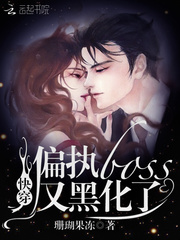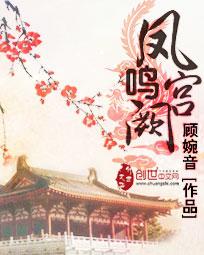LETTER 549
您可以在百度里搜索“The Works of Charles and Mary Lamb — Volume 6 艾草文学(www.321553.xyz)”查找最新章节!
LETTER 549
CHARLES LAMB TO WALTER SAVAGE LANDOR
[No date. October, 1832.]
Dear Sir, pray accept a little volume. 'Tis a legacy from Elia, you'll see. Silver and Gold had he none, but such as he had, left he you. I do not know how to thank you for attending to my request about the Album. I thought you would never remember it. Are not you proud and thankful, Emma?
Yes, very, both— EMMA ISOLA.
Many things I had to say to you, which there was not time for. One why should I forget? 'tis for Rose Aylmer, which has a charm I cannot explain. I lived upon it for weeks.—
Next I forgot to tell you I knew all your Welch annoyancers, the measureless Beethams. I knew a quarter of a mile of them. 17 brothers and 16 sisters, as they appear to me in memory. There was one of them that used to fix his long legs on my fender, and tell a story of a shark, every night, endless, immortal. How have I grudged the salt sea ravener not having had his gorge of him!
The shortest of the daughters measured 5 foot eleven without her shoes. Well, some day we may confer about them. But they were tall. Surely I have discover'd the longitude—
Sir, If you can spare a moment, I should be happy to hear from you—that rogue Robinson detained your verses, till I call'd for them. Don't entrust a bit of prose to the rogue, but believe me
Your obliged C.L.
My Sister sends her kind regards.
[Crabb Robinson took Landor to see Lamb on September 28, 1832. The following passage in Forster's Life of Landor describes the visit and explains this letter:—
The hour he passed with Lamb was one of unalloyed enjoyment. A letter from Crabb Robinson before he came over had filled him with affection for that most lovable of men, who had not an infirmity to which his sweetness of nature did not give something of kinship to a virtue. "I have just seen Charles and Mary Lamb," Crabb Robinson had written (20th October, 1831), "living in absolute solitude at Enfield. I find your poems lying open before Lamb. Both tipsy and sober he is ever muttering Rose Aylmer. But it is not those lines only that have a curious fascination for him. He is always turning to Gebir for things that haunt him in the same way." Their first and last hour was now passed together, and before they parted they were old friends. I visited Lamb myself (with Barry Cornwall) the following month, and remember the boyish delight with which he read to us the verses which Landor has written in the album of Emma Isola. He had just received them through Robinson, and had lost little time in making rich return by sending Landor his Last Essays of Elia.
These were Landor's verses:—
TO EMMA ISOLA
Etrurian domes, Pelasgian walls,
Live fountains, with their nymphs around
Terraced and citron-scented halls,
Skies smiling upon sacred ground—
The giant Alps, averse to France,
Point with impatient pride to those,
Calling the Briton to advance,
Amid eternal rocks and snows—
I dare not bid him stay behind,
I dare not tell him where to see
The fairest form, the purest mind,
Ausonia! that e'er sprang from thee,
and this is "Rose Aylmer";—
Ah what avails the sceptred race!
Ah what the form divine!
What every virtue, every grace!
Rose Aylmer, all were thine.
Rose Aylmer, whom these wakeful eyes
May weep, but never see,
A night of memories and of sighs
I consecrate to thee.
Of the measureless Bethams Lamb wrote in similar terms, but more fully, in an article in the New Times in 1825, entitled "Many Friends" (see Vol. I.).
On April 9, 1834, Landor wrote to Lady Blessington:—
I do not think that you ever knew Charles Lamb, who is lately dead. Robinson took me to see him.
"Once, and once only, have I seen thy face,
Elia! once only has thy tripping tongue
Run o'er my heart, yet never has been left
Impression on it stronger or more sweet.
Cordial old man! what youth was in thy years,
What wisdom in thy levity, what soul
In every utterance of thy purest breast!
Of all that ever wore man's form,'tis thee
I first would spring to at the gate of Heaven."
I say tripping tongue, for Charles Lamb stammered and spoke hurriedly. He did not think it worth while to put on a fine new coat to come down and see me in, as poor Coleridge did, but met me as if I had been a friend of twenty years' standing; indeed, he told me I had been so, and shewed me some things I had written much longer ago, and had utterly forgotten. The world will never see again two such delightful volumes as "The Essays of Elia;" no man living is capable of writing the worst twenty pages of them. The Continent has Zadig and Gil Bias, we have Elia and Sir Roger de Coverly.
Mrs. Fields, writing in the Atlantic Monthly for April, 1866, on Landor, says that Landor told her of his visit to Lamb and said that Lamb read to him some poetry and asked his opinion of it. Landor said it was very good, whereupon Lamb laughed and called Landor the vainest of men, for it was his own.
In a letter to Southey the lines differed, ending thus:
Few are the spirits of the glorified
I'd spring to earlier at the gate of Heaven.] The Works of Charles and Mary Lamb — Volume 6
